Publishing Talks: David Wilk interviews Andrea Fleck-Nisbet
April 8, 2012 by David
Filed under Ebooks and Digital Publishing, PublishingTalks, Technology, The Future
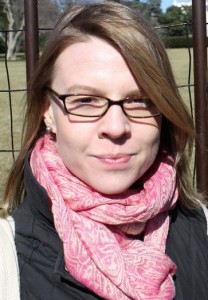 In this series of interviews, called Publishing Talks, I talk to book industry professionals and other smart people about the future of publishing, books, and culture. This is a period of disruption and change for all media businesses. How will publishing evolve as our culture is affected by technology, climate change, population density, and the ebb and flow of civilization and economics?
In this series of interviews, called Publishing Talks, I talk to book industry professionals and other smart people about the future of publishing, books, and culture. This is a period of disruption and change for all media businesses. How will publishing evolve as our culture is affected by technology, climate change, population density, and the ebb and flow of civilization and economics?
I hope these Publishing Talks conversations will help us better understand the outlines of what is happening in publishing, books and reading culture, and how we can ourselves both understand and influence the future of books and reading.
I have met and talked to a wide range of people involved in publishing and books over the past few years and I’ve interviewed quite a few of them for this series of podcasts. I noticed recently that I have not done very many interviews lately with people who are involved in creating digital reading experiences (also known as “ebooks”). Andrea Fleck-Nisbet, the Director of Digital Publishing at Workman Publishing wrote a piece for American Libraries Magazine called “A Publisher’s Perspective on Ebooks” that caught my eye. In this article, she wrote cogently about e-publishing as seen from the perspective of a leading trade publisher, so I thought that talking to Andrea for this series of Publishing Talks interviews would be fun and interesting.
Andrea has been at Workman for nine years and has worked on their digital initiatives since 2007. Workman is well known in the book industry for its innovative books and deep commitment to marketing and understanding what readers want.
We had a great talk about where things are today in e-publishing, and how we can expect it to evolve over the next few years. As Andrea’s American Libraries article was headlined: “the digital revolution has transformed every aspect of the publishing business.” Many of us know this to be true in theory, but not everyone can speak to all the myriad elements of publishing that are involved in making over an entire business. Andrea’s practical experience in digital publishing inform her perspective and make her well worth listening to.
Podcast: Play in new window | Download
Alex Gilvarry: From the Memoirs of a Non-Enemy Combatant
March 27, 2012 by David
Filed under Fiction, WritersCast
 978-0670023196 – Viking – Hardcover – $26.95 (ebook and audio book versions available)
978-0670023196 – Viking – Hardcover – $26.95 (ebook and audio book versions available)
Brilliantly composed as a satire on a broad swatch of contemporary American life, Alex Gilvarry’s From the Memoirs of a Non-Enemy Combatant will sneak up on you and whack you straight across the face. Even if you see it coming. I loved the writing, which is smart and slick, beautifully evocative, from a writer clearly in love with language and its many powers. For a first novelist, Gilvarry displays considerable writing chops, on top of his comedic skills and ability to skewer so many elements of the popular culture we have so taken for granted.
This book is structured as the unreliable narration of its main character, Boyet (Boy) Hernandez, who is a Filipino fashion designer come to New York to make his way in the world. The first two thirds of the book is his almost hapless story of the road to success (many wild and crazy people and events along the way), where we come to know and care about, but not necessarily love Boy, who is sometimes so self-involved and full of shit, even as he is talented and appealingly immature (I want to say “jejune” but he’s not quite that bad).
But things turn dark, when Boy is arrested and sent to Guantanamo and both privately and publicly humiliated as a suspected terrorist. This is where the author can turn his powerful satiric eye onto the political and cultural state of America at perhaps its worst. There is nothing more frightening than to see a true innocent (naif is the right word here) caught in the web of the modern anti-terror police state. While Boy is eventually freed, and as readers we are relieved, his life can never be the same – his glorious desire-fueled run into the heart of American pop culture has been destroyed, and he must become a new and immensely different person, and this is not necessarily for the better, in his case.
Ultimately, for this author, it feels as if there are two Americas, co-existing, but on different planes of existence. Both are heightened realities, in which most of us seem to live without really understanding what they mean. In many ways, this novel, with its humor, pathos, narrative power, and its ability to pinpoint cultural weaknesses and failures, can do more to help us understand the necessities of political and culture action than any of even the best nonfiction treatises that address the manifold issues of the early 21st century.
But don’t worry about the politics, just read this book for the wonderful novel it is, and draw your own conclusions about what you want to do after you read it. You might just want to listen to this interview then to hear more from Mr. Gilvarry about his book and how work as a writer (and editor – Alex is now the editor of the book review collaborative Tottenville Review, which I recommend you visit).  I had a wonderful time talking to this author and hope you will also enjoy the conversation.
I had a wonderful time talking to this author and hope you will also enjoy the conversation.
Also, visit Alex Gilvarry’s website for more information and news about this book and his work.
Podcast: Play in new window | Download
Publishing Talks: David Wilk interviews Brian O’Leary about The Opportunity in Abundance
March 18, 2012 by David
Filed under Ebooks and Digital Publishing, PublishingTalks, Technology, The Future
 In this series of interviews, called Publishing Talks, I talk to book industry professionals and other smart people about the future of publishing, books, and culture. This is a period of disruption and change for all media businesses. How will publishing evolve as our culture is affected by technology, climate change, population density, and the ebb and flow of civilization and economics?
In this series of interviews, called Publishing Talks, I talk to book industry professionals and other smart people about the future of publishing, books, and culture. This is a period of disruption and change for all media businesses. How will publishing evolve as our culture is affected by technology, climate change, population density, and the ebb and flow of civilization and economics?
I hope these Publishing Talks conversations will help us better understand the outlines of what is happening in publishing, books and reading culture, and how we can ourselves both understand and influence the future of books and reading.
Brian O’Leary’s Magellan Media provides research, benchmarking and business planning services that help smaller and medium-sized publishers manage and grow their top- and bottom-line results. Magazine, book and association publishers often engage Magellan to improve their content workflows across platforms and uses.
Brian frequently is called on to make industry presentations and he blogs regularly about critical matters in publishing (both for books and magazines). I follow his work closely. One of the pieces he published in October, 2011, called the Opportunity in Abundance, spurred me to talk to him once again for Publishing Talks. Today we live in an age of content abundance. Most publishers realize this as it affects them on a daily basis.
Brian has laid out an analysis of content abundance that I think will enable publishers to make sense of this new reality, and how to work successfully within it. His understanding of digital content should help publishers create their own contextual framework for thinking about how to do business in a radically new environment. It’s a great piece to read (as are his related essays), and this interview should help amplify and explain further some of his ideas. Of course, we did not always stick to the subject at hand, but were able to cover a wide range of related ideas that I hope will be interesting and useful to anyone interested in the current state of the publishing business.
Here is the specific link to his essay The Opportunity in Abundance. Brian is a terrific writer – he’s always able to be clear, insightful and understandable. I recommend reading through the archives at Magellan Media. And I also interviewed him in 2009, when we talked about piracy, another issue he has written about with great incisiveness.
Podcast: Play in new window | Download
Publishing Talks: David Wilk interviews Lou Aronica of Fiction Studio Books
March 4, 2012 by David
Filed under Ebooks and Digital Publishing, Publishing History, PublishingTalks, Technology, The Future
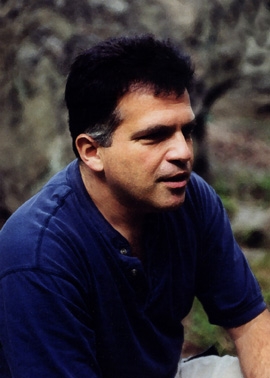 In this series of interviews, called Publishing Talks, I talk to book industry professionals and other smart people about the future of publishing, books, and culture. This is a period of disruption and change for all media businesses. How will publishing evolve as our culture is affected by technology, climate change, population density, and the ebb and flow of civilization and economics?
In this series of interviews, called Publishing Talks, I talk to book industry professionals and other smart people about the future of publishing, books, and culture. This is a period of disruption and change for all media businesses. How will publishing evolve as our culture is affected by technology, climate change, population density, and the ebb and flow of civilization and economics?
I hope these Publishing Talks conversations will help us better understand the outlines of what is happening in publishing, books and reading culture, and how we can ourselves both understand and influence the future of books and reading.
Lou Aronica is a long-time editor and publisher who left commercial publishing some years ago and then built a new career as a writer. In fact, I interviewed him in 2011 about his excellent fantasy sci-fi novel, Blue. Lou has been very successful as a writer and freelance editor. But over the past couple of years, Lou has continued exploring his publishing interests, most recently by founding a digital-first publishing imprint called Fiction Studio Books.
(I do recommend visiting his site and reading what he has to say about publishing in general and what Fiction Studio is all about).
Fiction Studio offers a different and in many ways unique model for writers. Lou is bringing to bear the most important traditional values of publishing – editorial and author development – that so many publishers today are no longer able or willing to provide in commercial publishing. By concentrating on quality and eliminating the overhead costs of print publishing, he has been able to begin to sketch out a workable structure for digital publishing of mainstream fiction that may be a useful model for the future, where the publisher provides real value and services that make sense for authors and readers. Lou calls this a “publishing culture” that benefits the books and the writers he publishes.
Importantly, Fiction Studio is selling a significant number of books, enough to make it a profitable business and not just an experiment in digital publishing. In its first year of existence, the imprint issued 14 titles.
Lou and I have often talked informally about the book business and the future. Typically I have learned alot from him and his experiences, past and present and always enjoy our talks. I think what he is doing now with this publishing program is tremendously important and should be inspirational to both publishers and authors.
Our conversation here covers a wide range of ideas and concepts drawn from his experience and reflecting his expansive vision of what a born-digital publishing company can and should look like. We talked about trends in digital publishing, how the role of the publisher is changing, the importance of editing and developing writers in the new digital marketplace, what makes a publisher meaningful and valuable to authors and to writers, ebook pricing models, and much, much more in this very wide-ranging conversation. To learn more, go to the website and read his essay about why he is publishing and the very active and interesting blog written by Fiction Studio authors as well.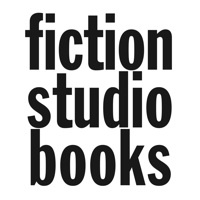
Podcast: Play in new window | Download
Margot Peters: Lorine Niedecker, A Poet’s Life
February 22, 2012 by David
Filed under Non-Fiction, Poetry, WritersCast
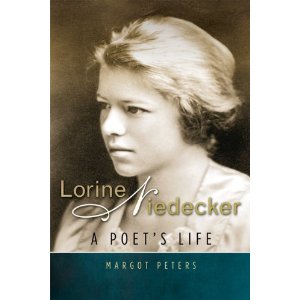 978-0299285005 – University of Wisconsin Press – Hardcover – $34.95
978-0299285005 – University of Wisconsin Press – Hardcover – $34.95
I have loved the poetry of Lorine Niedecker, and been deeply influenced by her work and life since being introduced to her writing by the great poet and independent literary publisher, Jonathan Williams, just a few years after her untimely death in 1970. His outstanding press, The Jargon Society, published one of the largest collections of her work during her all too brief lifetime (T & G: Collected Poems, 1970). In the years since her death, she has been discovered by many writers, scholars and general readers and her work is available now in several great collections, including Collected Works, edited by Jenny Penberthy, from the University of California Press.
For the many who still do not know of her, Lorine Niedecker (1903-1970) was born, raised, schooled and lived almost her entire life in Wisconsin. She was a poet her entire adult life, mostly self-educated, but always deeply involved in the milieu of modernist poetry and experimental writing. The most famous of her peers were William Carlos Williams (who knew and appreciated her writing), Louis Zukofsky (with whom she had a very deep and complicated relationship), and George Oppen and Carl Rakosi, among many others. But as a woman writer who worked hard for a living during a time when men ruled the literary roost, she wrote mostly in obscurity, known only to a small number of other writers who appreciated the brilliance of her imagination and craft.
My friend tree
I sawed you down
but I must attend
an older friend
the sun
Margot Peters’ new biography, Lorine Niedecker, A Poet’s Life, is a wonderful book, reflecting Peters’ own love and appreciation for her subject’s life and writing. Lorine’s life story is important to read about, whether you have read her poetry or not. It’s a powerful introduction to a complicated and unique American life. Lorine never had it easy. Her family life was difficult, her poor eyesight was a difficulty for her entire life, her relationships with men were complicated and often painful for her, and she never received the attention her writing deserved. Peters tells the story of her life in great detail, but is never boring. She interviewed people who knew Lorine where she lived in Wisconsin, and even those who, like me, think they know Lorine and her work will learn a great deal about her. Peters is perceptive and clear eyed about Lorine and aware of the difference between the life as lived and the poetry as written. For the poet, it is always the words that matter. Peters knows this too.
Reading about Lorine Niedecker continually reminded me of the power of her intellect and the depth of her brilliance as a poet. She honed and sharpened constantly, like a jeweler bringing a stone to life. Her reading was vast, her intelligence and clarity of vision virtually unmatched. I do not think it is an understatement to call Niedecker one of the greatest poets America has ever produced.
Poet’s work
Grandfather
advised me:
Learn a trade
I learned
to sit at desk
and condense
No layoff
from this
condensery
Every poet, every writer, should read and absorb these words.
If it’s not obvious, I have been smitten by this poet’s work for a really long time. This biography is a terrific addition to the Niedecker opus, and is highly recommended. I had a great time talking to Margot Peters, whose knowledge of Niedecker, Wisconsin and poetry is broad, deep and very well put together.
Please visit the Lorine Niedecker website to learn more about her, sample some poetry, and to get a feel for Fort Atkinson, where she lived most of her life. You can visit Margot Peters’ website for more about her book as well.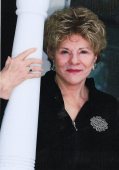 There is now an annual Niedecker Poetry Festival in Fort Atkinson, Wisconsin every fall.
There is now an annual Niedecker Poetry Festival in Fort Atkinson, Wisconsin every fall.
Books by and about Niedecker:
New Goose. Prairie City, Ill.: Press of James A. Decker, 1946.
My Friend Tree. Edinburgh: Wild Hawthorne Press, 1961.
North Central. London: Fulcrum Press, 1968.
T & G: Collected Poems 1936-1966. Penland, N.C.: Jargon Society, 1969.
My Life By Water: Collected Poems 1936-1968. London: Fulcrum Press, 1970.
Blue Chicory. Edited by Cid Corman, New Rochelle, N.Y.: The Elizabeth Press, 1976.
From This Condensery: The Complete Writings of Lorine Niedecker. Edited by Robert J. Bertholf, Jargon Society/Inland Book Company, 1985.
The Granite Pail: Selected Poems of Lorine Niedecker. Edited by Cid Corman, North Point Press, 1985.
Collected Works. Edited by Jenny Penberthy, Berkely: University of California Press, 2002.
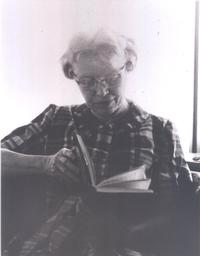 (note, I owe apologies to LN – in the poem Poet’s Work above, I could not get the spacing to work right here, please read it either on the Niedecker site or in the Collected Works to see it the way the poet meant it to look on the page)
(note, I owe apologies to LN – in the poem Poet’s Work above, I could not get the spacing to work right here, please read it either on the Niedecker site or in the Collected Works to see it the way the poet meant it to look on the page)
Podcast: Play in new window | Download
Publishing Talks: David Wilk Interviews Carl Lennertz about World Book Night 2012
January 28, 2012 by David
Filed under Publishing History, PublishingTalks, The Future
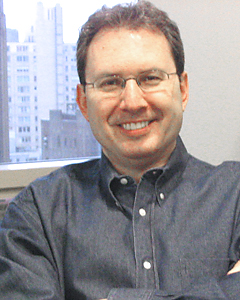 In this series of interviews, called Publishing Talks, I talk to book industry professionals and other smart people about the future of publishing, books, and culture. This is a period of disruption and change for all media businesses. How will publishing evolve as our culture is affected by technology, climate change, population density, and the ebb and flow of civilization and economics?
In this series of interviews, called Publishing Talks, I talk to book industry professionals and other smart people about the future of publishing, books, and culture. This is a period of disruption and change for all media businesses. How will publishing evolve as our culture is affected by technology, climate change, population density, and the ebb and flow of civilization and economics?
I hope these Publishing Talks conversations will help us better understand the outlines of what is happening in publishing, books and reading culture, and how we can ourselves both understand and influence the future of books and reading.
Carl Lennertz has got himself a dream job, as he was happy to tell me when we talked. Carl is the Director of World Book Night in the United States. World Book Night originated in the U.K. in 2011 and has quickly grabbed the imagination of book lovers there and in this country as well. Thousands of people will go into their communities on April 23, 2012 to give specially printed books away to potential readers. The idea is to enlist volunteers – many are needed – so if you are interested, go to the website (now!) to register. Even if you miss the 2012 deadline, you will want to participate in the future.
World Book Night is a great idea, supported now by Ingram Book Company in the United States as well as a number of terrific publishers. A total of thirty excellent books (see the list here) were selected and will be printed in special editions of 20,000 copies each. Libraries are signing up to participate, along with booksellers, and writers themselves. Carl is blogging about the whole thing on a regular basis too, visit regularly or subscribe to keep up with all the many events and doings around the country. This is a great project – we need more book readers in America, where we have far too many non-readers for the good of the nation.
Carl is a terrific person to have this job. His enthusiasm and dedication is just what this project needs. Please listen to our conversation about World Book Night, and do what you can to support this effort.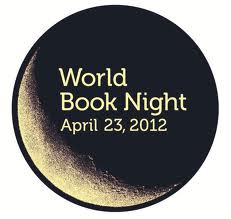
Podcast: Play in new window | Download
Publishing Talks: David Wilk Interviews John Sundman
January 5, 2012 by David
Filed under Ebooks and Digital Publishing, PublishingTalks, Technology, The Future
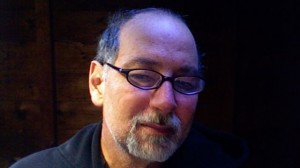 In this series of interviews, called Publishing Talks, I talk to book industry professionals and other smart people about the future of publishing, books, and culture. This is a period of disruption and change for all media businesses. How will publishing evolve as our culture is affected by technology, climate change, population density, and the ebb and flow of civilization and economics?
In this series of interviews, called Publishing Talks, I talk to book industry professionals and other smart people about the future of publishing, books, and culture. This is a period of disruption and change for all media businesses. How will publishing evolve as our culture is affected by technology, climate change, population density, and the ebb and flow of civilization and economics?
I hope these Publishing Talks conversations will help us better understand the outlines of what is happening in publishing, books and reading culture, and how we can ourselves both understand and influence the future of books and reading.
I’ve had the pleasure of knowing John Sundman for only a brief period of time, but value my emerging friendship with him greatly. He’s been a writer in a variety of forms, and a visionary thinker about many things I am interested in. He’s been a self publisher for quite some time, and I thought his experience doing his own publishing would be a good starting point for a conversation about where publishing appears to be going. Here’s his bio (from his Smashwords page):
John Sundman is a freelance technical writer, essayist, novelist, self-publisher, volunteer firefighter, food pantry co-director, former Peace Corps Volunteer, husband, father, and advocate for people with disabilities who resides on the island of Martha’s Vineyard, very near to Massachusetts, USA. He has spent more than 20 of the last 30 years somehow connected to the Silicon Valley/Boston high-tech/computer industry. He also has experience as a farmer, student of agricultural economics, and worker in rural African agricultural development. His books are more subtle than they appear.
John blogs with a number of other free thinking visionaries at Wetmachine (“we write about, mostly, the nexus of technology, science and social policy in the USA. We also write about software praxis, technoparanoia, the craft of writing, self-publishing, politics, and random bullshit. Sundman and Gray, in particular, are leaders in the “random bullshit” category.”)
John’s books are quite good and well worth reading (here’s a review of his first book, Acts of the Apostles, that more or less set him on a successful path of self-publishing, an early web story, which serves as precursor for so many other stories of discovery). I could have interviewed him about one of his books, but I thought talking to him about publishing would give us a chance to talk more broadly. Do take a look at his books (widely available in online retail stores). And he’s finally doing a book with a publisher other than himself, an overhauled and rewritten Acts of the Apostles with the esteemed Underland Press. 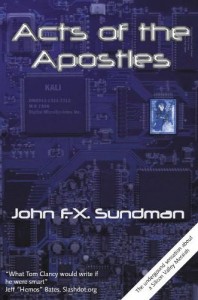
John and I had a great talk. I’ll be interested to hear from listeners what you think of some of his ideas.
.
Podcast: Play in new window | Download
Christina Thompson: Come on Shore and We Will Kill and Eat You All
December 18, 2011 by David
Filed under Non-Fiction, WritersCast
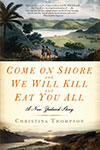 978-1596911277 – Bloomsbury USA – $15.00 – paperback (ebook editions available)
978-1596911277 – Bloomsbury USA – $15.00 – paperback (ebook editions available)
Christina Thompson’s Come on Shore and We Will Kill and Eat You All – A New Zealand Story gets one’s immediate attention for its outstanding title, of course. How could one resist? This tightly woven memoir was recommended to me by a writer friend who admires stylish writing and it certainly does offer some very fine writing.
But I was most drawn to it at the outset, because Ms. Thompson is an anthropologist, a field of study I have always loved. Early in her career, she lived and worked in Australia, and traveled to nearby Pacific islands, including New Zealand, where she met and eventually married a Maori, the point where this book really starts to take off.
The title of the book comes from a statement made by Maoris at an early meeting with some European explorers. It perfectly stands for the cultural gulf between the two peoples and the lack of understanding each had for the other’s entirely foreign culture. This theme of misunderstanding, and of culturally determined viewpoints, runs throughout the entire book. Because she is now directly connected to the Maori/Polynesian worldview by dint of marriage, and because she has an anthropologist’s ability to look beyond her own viewpoint, Thompson is able to navigate the intricacies of cross-cultural interaction better than most writers.
Thompson talks about her family, children, American and Maori relations as part of the effort to understand differences, and to explain behavior. It’s inevitable that Maori and Polynesian cultures are poorly understood in either Europe or America, where the author and her family now lives. In this memoir, author Thompson looks at the past and the present through the lens of contact and perception with a powerful incisiveness. Sometimes we are lulled by the commonplace story of the present, and then are shaken awake by its connections to a violent past. The historical Maoris were a violent and warlike people, and their collision with the equally violent (and self-centered) Europeans of the colonial imperial era created a long period of difficulty for the native people of New Zealand and surrounding regions of the Pacific.
This book is one I can recommend to anyone who wants to see beyond her or his own experience, to learn the limits of anyone’s personal perspective as it is part of a cultural construct, and to peek into the different ones that are around us in our now hyper-connected universe. Another fine book I am pleased to recommend. And I do think our conversation expands on the ideas that are present in the book.
Christina Thompson is the editor of Harvard Review. Her essays and articles have appeared in a number of magazines and journals, including Vogue, American Scholar, the Journal of Pacific History, Australian Literary Studies, and in the 1999, 2000, and 2006 editions of Best Australian Essays. She lives near Boston with her husband and three sons.You can read excerpts from this book, find some very interesting resources and learn more about the author and her work at www.comeonshore.com.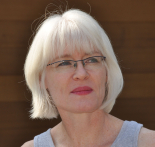
Podcast: Play in new window | Download
David Gessner: My Green Manifesto: Down the Charles River in Pursuit of a New Environmentalism
December 3, 2011 by David
Filed under Non-Fiction, WritersCast
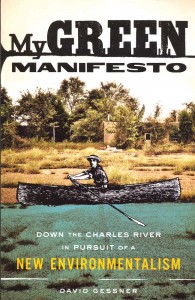 978-1-571313-24-9 – Milkweed Editions – paperback – $15 (ebook editions available)
978-1-571313-24-9 – Milkweed Editions – paperback – $15 (ebook editions available)
David Gessner is a sort of post-modernist environmentalist. He’s written a number of books that celebrate the natural world and the wild, and he is a terrific writer capable of transcendent prose and has the keen observer’s eye that anyone writing about nature must have. But he understands the difficulties and contradictions that suffuse contemporary civilization. And he has a sense of humor and irony (which environmentalists are not always known for).
In My Green Manifesto, he addresses a major issue that affects so many of us who feel strongly about the arc of modern civilization, that its inertia is overwhelming, the problems so great, the solutions so elusive, and the efforts of individuals so ineffectual as to make us lose all hope of being able to make meaningful change.
The book takes us through Gessner’s journey from the headwaters of the Charles River to its end in Boston’s urban harbor. His trip is made for the most part in company with a true environmental hero, Dan Driscoll, who almost single-handedly spurred the suburban and urban communities along the once highly polluted river to make significant changes to both restore and protect the river and riverside ecology. They travel in a leaky canoe, drink beer, sleep in tents, and enjoy the pleasures of a “limited-wild” experience.
Gessner takes heart from the work Driscoll has done, and shows us how important his practical efforts have been. “This new picture is that of a man or woman who knows how to get things done, who understands the value of momentum, of focus on a particular project. Not a shrill or dry or particularly flowery environmentalism … Someone willing to get in [a] fight and ‘Sue the bastards.’ Someone willing to stick their nose in there and feel what it’s like to get bruised. And someone willing to stay locked in that fight for years, even if it costs them emotional as well as actual capital.’’
Gessner writes with great humor and joy about the pleasures of being in nature, wherever one lives, and that is the core of his manifesto. His ideas will resonate for many who are not willing, able or equipped to spend significant time in distant wildernesses. And as a “manifesto” this book will be easy for most readers to digest and accept. Gessner’s message is positive and powerful because it is realistic and not preachy and because so many of us can relate to his experiences of the joy of being in nature and at the same time despair over the sheer extent of modern society’s environmental unconsciousness.
Gessner reminds us that it is possible to hold two seemingly contradictory ideas in our minds at the same time, that complexity and contradiction are almost facts of life, but cannot defeat us from taking action to make change. “The first idea was acceptance, the acceptance, totally without rancor, of life as it is, and men as they are … But this did not mean that one could be complacent, for the second idea was of equal power: that one must never, in one’s own life, accept these injustices as commonplace but must fight them with all one’s strength.’’
Author website here (you can find a list of all his many fine books there) Gessner’s latest book is one I am interested in reading as well. The Tarball Chronicles: A Journey Beyond the Oiled Pelican and Into the Heart of the Gulf Oil Spill chronicles his visit to the Gulf after it had passed out of the news. Not an uplifting story, I fear.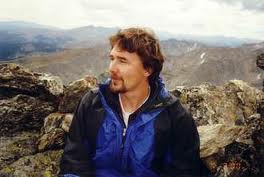
Podcast: Play in new window | Download
Publishing Talks: David Wilk interviews Miral Sattar about BiblioCrunch
November 28, 2011 by David
Filed under Ebooks and Digital Publishing, PublishingTalks, Technology, The Future
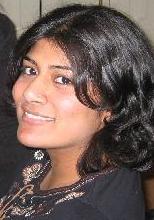 In this series of interviews, called Publishing Talks, I talk to book industry professionals and other smart people about the future of publishing, books, and culture. This is a period of disruption and change for all media businesses. How will publishing evolve as our culture is affected by technology, climate change, population density, and the ebb and flow of civilization and economics?
In this series of interviews, called Publishing Talks, I talk to book industry professionals and other smart people about the future of publishing, books, and culture. This is a period of disruption and change for all media businesses. How will publishing evolve as our culture is affected by technology, climate change, population density, and the ebb and flow of civilization and economics?
I hope these Publishing Talks conversations will help us better understand the outlines of what is happening in publishing, books and reading culture, and how we can ourselves both understand and influence the future of books and reading.
Miral Sattar is a young serial entrepreneur with roots in the publishing business. She is the Founder of Divanee.com and Weddings.Divanee.com and has worked in the media industry for 10 years. Ms. Sattar is a contributor for Time, teaches entrepreneurial journalism sessions at CUNY, and has contributed to Metro and Jane Magazine. She graduated from Columbia University’s School of Engineering and Applied Science, and recently earned an M.S. in Digital + Print Media.
In many ways Miral represents the future of the book business. She’s had innovative and smart ideas for new products and new uses of digital technology to create new ways for readers and writers to interact. Failing to gain any traction for her ideas within traditional publishing institutions, she set out on her own to build what she believes writers and readers want and need, a new and different publishing/reading platform called BiblioCrunch. There’s alot to be interested in here if you are looking for ways that online publishing can be made simple.
From the BiblioCrunch.com website:
What is BiblioCrunch.com?
BiblioCrunch.com is a platform that empowers writers and publishers to create and market their own manuscripts, completed works, digital books and bookazines. Through our platform anyone – bloggers, authors, aspiring writers, students, writers, journalists, publishers – can share their stories.
• You can create all your great books online through our easy interface in any format any eReader!
• Once you’ve written all the chapters for your book you can either post it for FREE or start SELLING.
• You can start SHARING your book via social media so others can download your book.
• VOTE your book to the top by sharing it with all your friends.
• Need to hire an EDITOR or DESIGNER? Why not connect with someone in the MEMBERS community to help edit your book and design an awesome cover.
Why use BiblioCrunch.com?
• BiblioCrunch is the place for you to write, read, and distribute your favorite books in just a few steps.
• Create virtual bookshelves, discover new books, connect with friends and learn more about your favorite books – all for free.
• On BiblioCrunch.com you can connect with writers, publishers, readers, editors, copyeditors, and designers to create the best books.
• We’re also cheaper than other services that take 30% of each book sold.
•
How can I share my books?
• Each book has it’s own public download page that you can share on Twitter and Facebook.
Building tools that make it easy for people to publish their work and for readers to read it is really a publishing function. As with many other sites, the idea here is that readers can decide for themselves what they want to read. It will be interesting to see if, as some traditionally minded digerati have suggested, that the editorial or curatorial role will be needed, perhaps more than ever, but if so, my guess is that it will develop in different ways, based on the different understanding of the editorial function that today’s writers and readers have developed.
I wanted to talk to Miral about BiblioCrunch because I am always interested in new ideas and constructs, and also because I think the story she tells about the genesis and plans for this site will be instructive and valuable to others in the book universe. And hopefully, her ideas might generate some additional thinking about how platforms, innovation and audiences for reading will develop in the near future.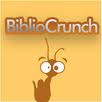 Creating a new publishing platform is no small feat, but the real challenge will be to attract readers and writers in significant numbers. I’m hoping this site will succeed through innovation and creativity, as a healthy publishing ecosystem requires a wide variety of niches, large and small.
Creating a new publishing platform is no small feat, but the real challenge will be to attract readers and writers in significant numbers. I’m hoping this site will succeed through innovation and creativity, as a healthy publishing ecosystem requires a wide variety of niches, large and small.
Podcast: Play in new window | Download
